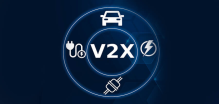Earlier, Moscow's Deputy Mayor of Transportation shared their experience. The city's transport system had been overloaded since 2010. The city government together with Russian and international experts have jointly developed an improvement plan, and launched a smart transportation system and related infrastructure from 2012 to 2015 to solve the problem.
Many features of the smart transportation system may be familiar to us, that is, installing thousands of sensors, video surveillance cameras, and smart traffic lights on the streets, to monitor the road's condition in real time, proactively relieving traffic congestion. It replaced the practice of passively waiting for Muscovites' complaints or reports from law enforcement officials before taking action.
The system not only targets the traffic flow problems, but also addresses the usage of parking spaces.
In addition, there were supporting measures, including the re-organization of public transport routes, encouraging bicycle travelling, etc., together with big data analysis to improve the road condition.
For example, the government upgraded the bus fleet and train carriages to attract more people to take public transport. By the end of 2017, 90% of the buses had been in service for less than five years, and almost 40% of the metro trains were brand new.
The smart transportation system collected passengers' boarding and alighting patterns so as to introduce new bus routes to reduce the need for interchange. One new route has benefited more than 900,000 commuters in the city.
At the same time, the increase of cycling tracks provides more choices to the Muscovites. Compared with 2015, the number of cycling trips doubled to 2.3 million in 2017.
As a result, travel via public transport each year has grown from 1.9 billion in 2010 to 2.8 billion in 2017. Moscow ranked No.1 in terms of most congested in 2010, this dropped to 13th in 2016. Although the number of private cars increased by one million during the time, the average speed of travelling increased by 13%.
At the same time, there was a time saving of 65% for searching a parking space. No wonder people in Moscow were proud of these achievements.
Besides, a mobile phone application has been set up to help people to plan their journeys, find parking spaces, process payment, and rent bicycles.
This popular application has 3.5 million of downloads so far. The government has also developed online and mobile versions for more than 220 public services, up to 75% of the public has used these applications.
These together with the privately-developed ones, mobile applications have gained wide acceptance and popularity in Moscow, making the city No.1 in Europe. In Hong Kong, there are also many online and mobile versions of public services.
However, Andrey Belozerov, senior advisor to the Moscow Chief Information Officer, said that the most important element of open information was a computer readable format, the so-called application programming interface or API, which could be used by application developers.
This leads to a variety of applications for the convenience of the public in Moscow, such as traffic violation notice, payment of utilities. In this regard, Hong Kong really has to work harder.
Dr. Winnie Tang, Honorary Professor, Department of Computer Science, University of Hong Kong


















